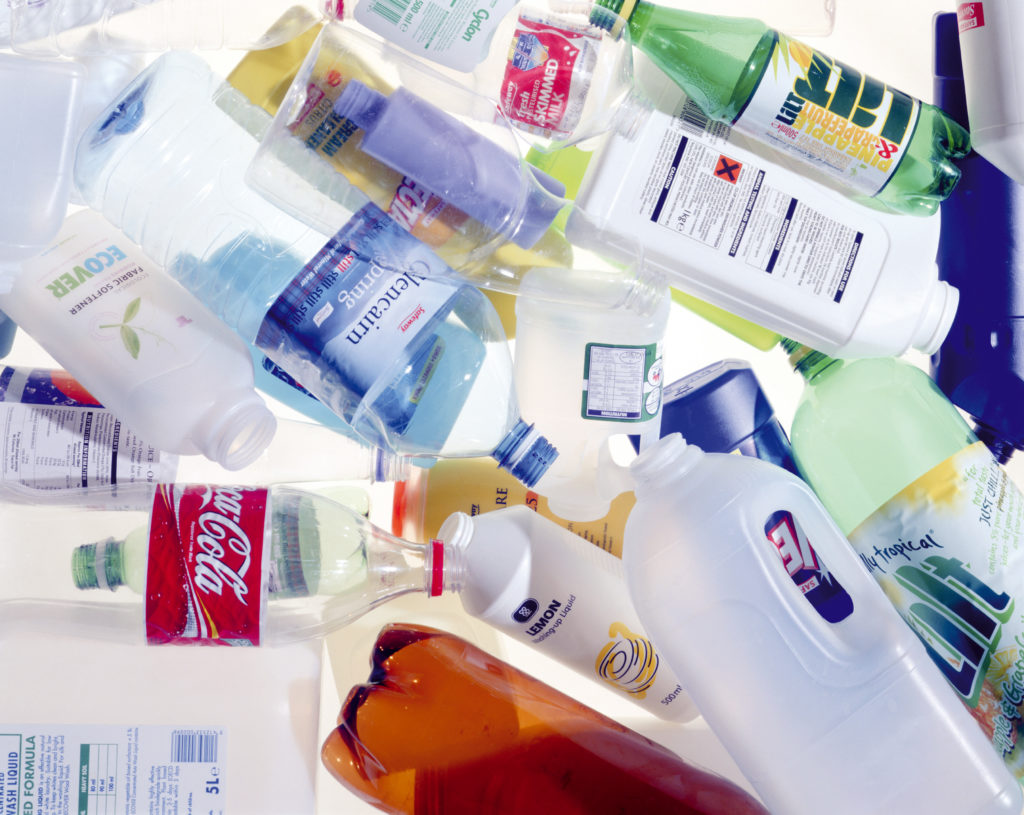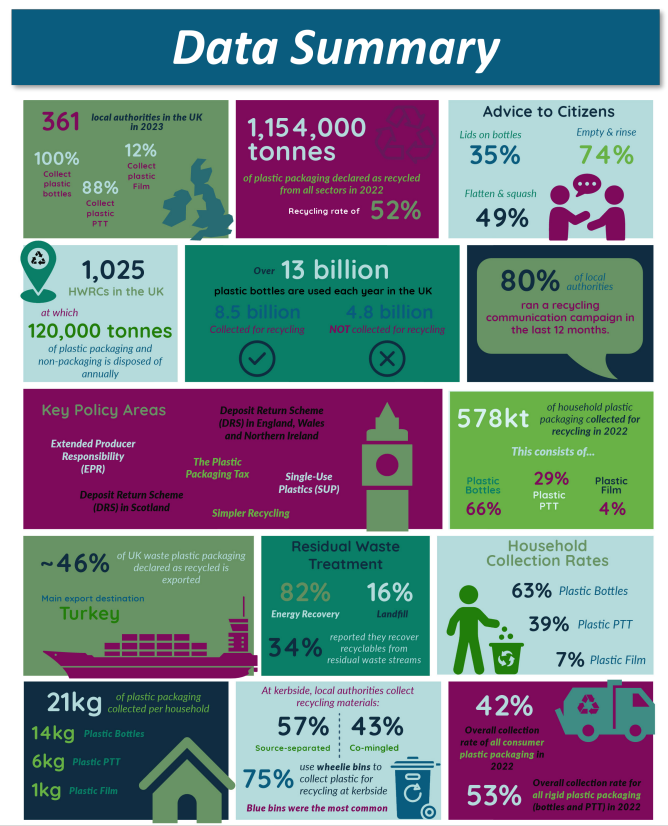RECOUP has surveyed all 374 local authorities in the UK on household plastic packaging collection every year since 1995.
For its 2023 survey, it estimated that there was reduction of around 70,000 tonnes in the quantity of household plastic packaging placed on the market in the UK, with quantities collected by local authorities at the kerbside also reducing by nearly 30,000 tonnes, both reducing by around 5%.
There has also been a plateau in the development of kerbside provision, as all UK local authorities have collected plastic bottles for recycling at the kerbside since 2019, but only 88% collect plastic pots, tubs, and trays, the same as in 2021, and plastic films and flexibles dropping from 13% to 12%, the sixth year in a row this has decreased.
This amounts to a collection rate of 42% for all household plastic packaging – 63% for plastic bottles, 39% for plastic pots, tubs, and trays, and 7% for plastic films and flexibles. The UK’s overall recycling rate for plastic packaging from household and commercial sources is 52%.
The survey also found that 46% of UK waste plastic packaging declared as recycled is exported, with Turkey the largest destination.
Legislation
Tom McBeth, policy and infrastructure manager at RECOUP, commented: “This year’s survey has shown the reduction in packaging placed on the market. Whilst the collected material also dropped, in the context of the amount of material used, it shows a picture of stagnation in collection levels with service provision also remaining similar to the 2022 survey.
“With the news of Simpler Recycling beginning to come into force in England from 2025, and some level of certainty in dates for material collection requirements, DRS and EPR, it is important that local authorities are now able to understand the funding they will have to drive the collection of more plastic packaging from consumers”.
Recoup has said with the governments ‘Simpler Recycling’ plan announced in October “local authorities can now start to plan how they can tackle the changes needed, although payments to enable this from the new packaging Extended Producer Responsibility are yet to be fully established.”
The body goes on to say that “policy alone may not unpick some of the complexities local authorities have with their collection contracts and infrastructure, but to avoid a further slide or stagnation in household plastic collections, efforts need to be made sooner rather than later, particularly with recycling targets due to increase.”
Anne Hitch, business and project development lead at RECOUP, commented: “Whilst we continue to wait for supporting legislation, citizens remain uncertain about what to recycle in terms of plastics and how. 32% of all respondents to the Insights Survey declared that when they do not recycle an item it is because they are confused about if it is recyclable.
“If we are to gain ground in terms of kerbside tonnages and quality of plastics, it is crucial that investment in plastics recycling communications is given priority”.
Insights
The charity also launched its UK Citizen Plastics Recycling Behaviours Insights Survey 2023, which revealed there was a national decrease of 7% in citizens claiming to consistently recycle plastic drink bottles.
However, in collaboration with Durham county council, Pledge2Recycle Plastics has driven positive change, resulting in a 2% increase to 97% of individuals consistently recycle drink bottles.
Despite 57% of local authorities continuously conducting waste and recycling communication campaigns, inconsistencies persist in messaging, particularly regarding bottle lid status, packaging preparation, and recycling practices. The body highlighted that the lack of cohesive communication is evident in a slight increase in rejection rates, reaching 37% for one authority and averaging at 14% across all respondents.












Subscribe for free